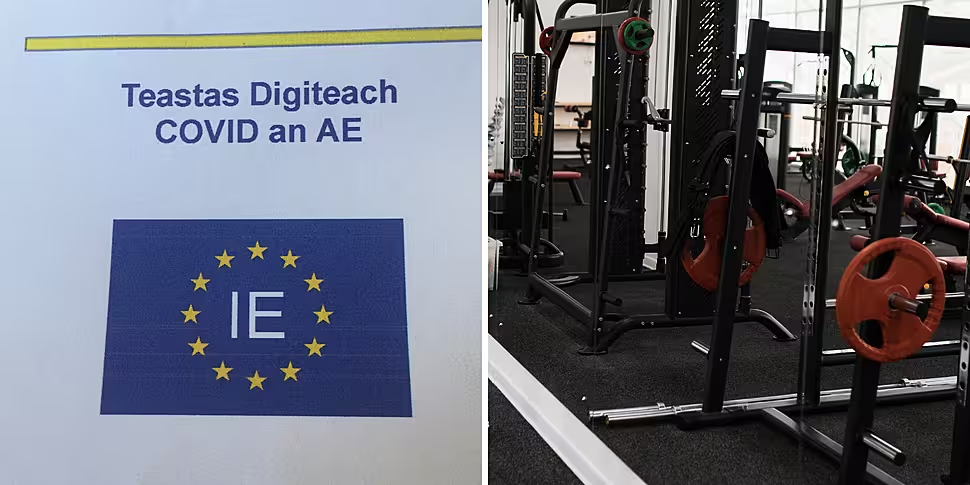The benefits of expanding the use of vaccine certs are likely to be 'marginal at best', a leading immunologist says.
Professor Paul Moynagh believes health officials have also been "very slow" when it comes to approving vaccine boosters and the wider use of antigen tests.
Both boosters and rapid tests are among the items on the agenda as Cabinet ministers meet today to consider steps to try to curb the current wave of COVID-19 infections and hospitalisations.
The booster programme is set to be expanded to over 5os and anyone with an underlying condition.
Measures aimed at making antigen tests more widely accessible are also expected to be announced after the meeting.
Another measure set to be discussed is the extension of vaccine certs to non-hospitality settings such as gyms and hairdressers.
On Newstalk Breakfast, Prof Moynagh - Professor of Immunology and Director of the Kathleen Lonsdale Institute for Human Health Research at Maynooth University - doesn't believe that measure will have a major impact.
He said: “If there are any positives, I have to think at best it will be marginal. The rate of vaccination is extremely high.
“I look over to the UK. England opened up mid to late summer. Wales didn’t, and are still using vaccine certs… but actually their numbers are higher now.”
Others have raised concerns about the extension of vaccine passes, with the ICCL warning the use of the passes is "clearly discriminatory".
'Very slow' decisions
Meanwhile, Professor Moynagh believes NPHET and NIAC have been slow in making some key decisions around rapid tests and boosters.
He said: “In terms of boosters for healthcare workers… I’m confused as to why it took so long. In my view, the evidence was already there.
“If we look at antigen testing, we’ve been very slow to adopt that.
“Better late than never, but it is coming very late in the game - we’ve ended up being reactive rather than proactive.
“It’s not a silver bullet, but it’s one of the tools we have - and we should have been using it.”
He said the lack of testing of asymptomatic close contacts in schools means there's no oversight at all in those situations.
He also believes most people will use antigen tests in a "very responsible" way, such as before going into a "high-risk situation".
NPHET has already advised that anyone engaging in activities such as going to restaurants, bars, nightclubs, cinemas, indoor sports or multi-household visits should be self-testing at least twice a week.
The Taoiseach has backed calls to make the tests more affordable, amid concerns the current cost of rapid tests is prohibitive.









